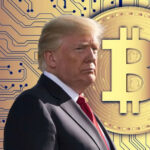Unilateral tariffs are back center stage as China and the US prepare for landmark trade negotiations in Switzerland — their most important one since the high point of the trade war. With both nations’ economies shouldering the stress of escalating economic uncertainty and rocked global markets, Beijing has revivified the call for Washington to lift retaliatory tariffs imposed on Chinese goods, terming it the only way towards earnest negotiation and ultimately resolution.
Read More: US-Imposed Tariffs Slash: Malaysia’s Bold Strategy for Trade Victory
China’s Unwavering Stance on Cancelling Tariffs
Chinese Commerce Ministry spokesman He Yadong reiterated at a press conference on Thursday that the US must be “sincere” in future negotiations by abolishing unilateral tariffs imposed on Chinese exports. He emphasized that the US “needs to be sincere to negotiate and be willing to correct its injustice and abolish unilateral tariffs.” This communique reflects China’s consistent stance that tariff withdrawal is a condition for genuine progress in the future US-China trade negotiations.
Beijing’s insistence on the elimination of unilateral tariffs is part of its overall strategy to frame itself as the responsible actor in the current trade war. Chinese officials have time and again said that the trade war, which has seen tit-for-tat tariff increases, has damaged not just the two largest economies but also the global economic system. The appeal for the US to roll back unilateral tariffs is regarded as a necessary step towards de-escalation and the restoration of stability in international trade.
Tariffs, Trade War, and Economic Effect
The present impasse is a fallout from the US-China trade war, which escalated after President Donald Trump imposed tariffs of up to 145% on Chinese imports last year. In response, China imposed Unilateral tariffs of up to 125% on chosen American products. These steps have resulted in a precipitous fall in bilateral trade, cut global supply chains short, and created great turbulence in financial markets.
World economic experts have warned that the current US-China trade war has the potential to drive the world into a recession if not brought to an end. The International Monetary Fund has recently cut its forecast for world growth due to the effects of rising tariffs and trade tensions. US Treasury Secretary Scott Bessent has also admitted that the current level of tariffs is unsustainable and called for “fair trade” and not economic decoupling.
In the meantime, China has rolled out a series of stimulus measures to offset the adverse impact of the trade war, such as interest rate cuts and injections of liquidity. But these have had little effect on investor sentiment, as markets continue to watch for the outcome of the next US-China trade talks.
Also Read: Bitcoin Breaks $97K Barrier Amid Fresh US-China Trade Optimism
The Road to Switzerland: High Stakes and Low Expectations
The Swiss meeting is the first face-to-face encounter between Chinese and US officials since the last round of trade tariff increases. Beijing will be represented by Vice Premier He Lifeng, who will be opposed by US Trade Representative Jamieson Greer and US Treasury Secretary Scott Bessent in the American contingent. Both the sides have indicated that the meetings will be dedicated to de-escalation efforts and not towards a full trade agreement.
In spite of the stakes, hopes for a breakthrough are low. Experts and international trade specialists expect the negotiations to run for months, with little chance of a quick fix. China’s stand is firm: serious negotiations are possible only if the US withdraws unilateral tariffs and shows a willingness to negotiate in good faith.
President Trump, however, has said he is not interested in reducing tariffs just to get China to the negotiating table. He has justified the tariffs as being needed to safeguard American interests and correct trade imbalances, but has also suggested that tariffs could be reduced “at some point” if there is progress.
The current US-China trade war has shaken the world’s markets. The use of unilateral tariffs has resulted in increased prices for consumers, disruption in supply chains, and business uncertainty across the globe. In China, factory shutdowns and rising joblessness have been traced to the effects of US tariffs. In the US, an estimated $4,000 per annum is expected to be paid by households as a result of higher import prices.
Financial markets have reacted to reports of the forthcoming negotiations with guarded optimism. Asian and US stock markets made modest advances on the news, indicating hopes that even small-scale progress would relax tensions and stabilize the world economy.
The Path Forward for US-China Trade Relations
As the world waits for the Switzerland negotiations, the focus continues to be on the subject of unilateral tariffs. China’s persistent requests that the US revoke these tariffs continue to reflect the immense gaps that exist between the two superpowers. Although both parties have indicated interest in talking, major hurdles still exist, and the fate of the US-China trade negotiations will probably influence the path of global trade for months to come.
The future will hinge on whether the US is inclined to re-evaluate its tariff policy and whether China is able to make concessions which serve American interests. For now, the world economy is on hold, waiting for the outcome of these pivotal talks.
For More Trending Business News, Follow Us 10xtimes News






